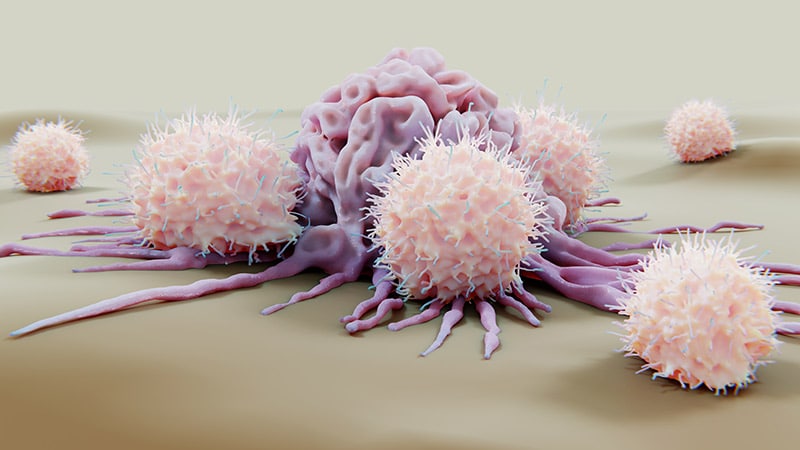Natural Killer Cell Therapy for Alzheimer's Disease Shows Promise
The investigational NK cell therapy, SNK01, developed by NKGen Biotech, has shown promise in treating Alzheimer's disease. The therapy involves enhanced NK cells that have increased cytotoxicity and activating receptor expression. The therapy aims to reduce amyloid and tau proteins, decrease neuroinflammation, and improve cognitive function in patients with Alzheimer's disease. The phase 1 clinical trial demonstrated safety, tolerability, and exploratory efficacy of SNK01 in patients with varying stages of Alzheimer's disease. The therapy successfully activated and expanded NK cells in all patients without any adverse events. Positive results from the trial have led to FDA approval for a phase 1/2a study in patients with moderate Alzheimer's disease.
Key Highlights:
- SNK01, an autologous NK cell therapy, shows promise in treating Alzheimer's disease.
- Enhanced NK cells reduce amyloid and tau proteins, improve cognitive function, and decrease neuroinflammation.
- Phase 1 trial results demonstrate safety, tolerability, and efficacy of SNK01 in patients with Alzheimer's disease.
- NK cell therapy may complement existing anti-amyloid and anti-tau therapies for Alzheimer's disease.
Samenvatting aanpassen
Herschrijven met AI
Citaten genereren
Bron vertalen
Naar een andere taal
Mindmap genereren
vanuit de broninhoud
Bron bekijken
www.medscape.com
Natural Killer Cell Therapy Shows Promise in Alzheimer's
Belangrijkste Inzichten Gedestilleerd Uit
by Megan Brooks om www.medscape.com 11-02-2023
https://www.medscape.com/viewarticle/998022
Diepere vragen
